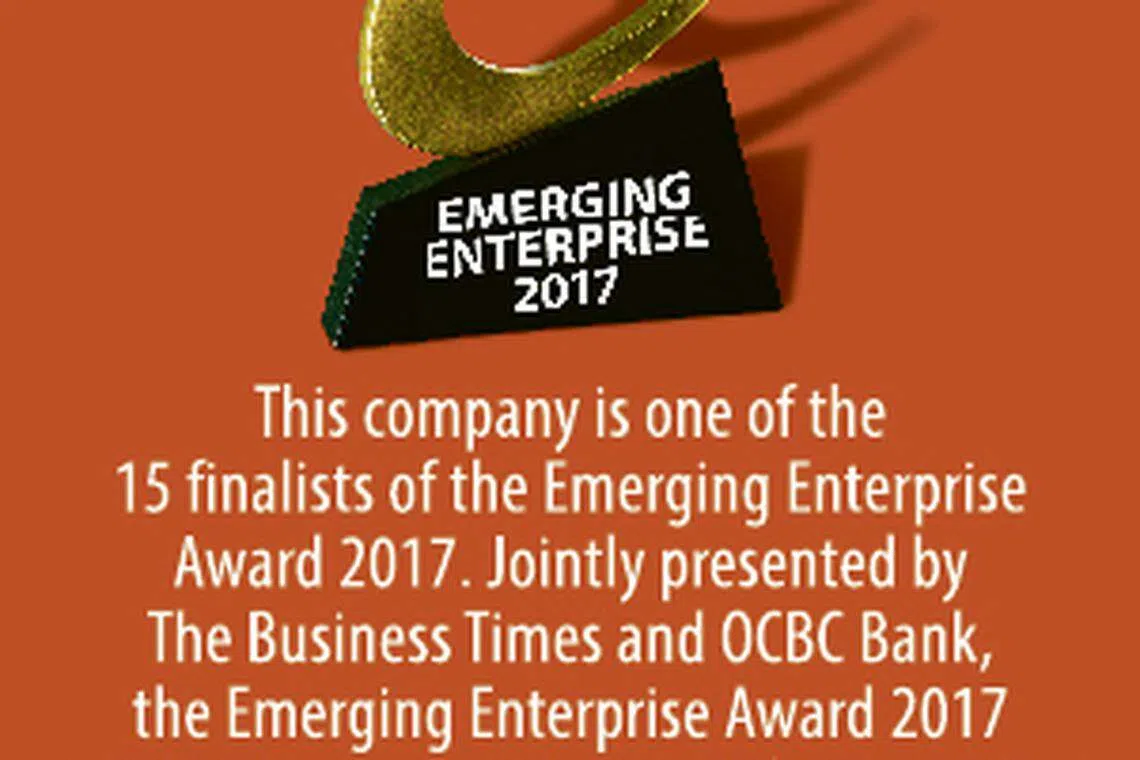A-Plus doesn't come easy for this homegrown firm
MD shares tough journey it went through before carving a niche market.
CARVING out a niche in food and e-commerce has helped A-Plus Automation make a name for itself in the materials management industry.
The homegrown firm, which was founded in 1979, started out trading motors, sensors and components for the automation industry in Singapore. Today, it designs, manufactures and installs automated materials handling systems for manufacturing and logistic companies across South-east Asia - with a new focus on food and e-commerce.
It has built a reputation in the region, counting big names among its clients. These include DHL Express Singapore, ExxonMobile Singapore, Tee Yih Jia Singapore, Kraft Foods Indonesia and Malaysia, Mondelez Philippines, Adeka Margarine Malaysia and Lazada Thailand.
A-Plus has also done well in terms of earnings in recent years. Its revenue grew some 24 per cent from S$5.9 million in FY2016 to S$7.3 million in FY2017. The company also reversed a net loss before taxation of S$271,000 in FY2015 to a net profit before taxation of S$322,000 in FY2016, and S$658,000 in FY2017.
But A-Plus' journey has not been without challenges.
Rodney Ham, managing director of A-Plus, told The Business Times that the 38-year-old company went into the red in 2015 because it was too accustomed to its old ways.
"We were caught staying stagnant and not looking deeper to challenge our old marketing approach. Business was poor and margins were falling. Our factory was empty with fewer orders on hand, and our people were too free."
Mr Ham said that this became a wake-up call for the company, after which it "relentlessly" searched for its next breakthrough, a new growth sector. That turned out to be e-commerce.
"We were fortunate to get into e-commerce and logistics at the right time. It was when the big e-commerce companies were just expanding into South-east Asia.
"By a stroke of luck, we managed to find an overseas business partner that could provide the materials handling and sortation systems to meet the needs of the industry."
In the last three years, A-Plus has been focusing on the e-commerce sector.
Mr Ham said: "As Internet purchases grew at a rapid pace, the transport providers fulfilling the orders needed automated equipment to transfer, sort and deliver items to the end-consumers. We found our niche in offering high-speed sortation systems to them, that can handle sortation of up to 12,000 parcels per hour."
But this was not an easy decision for A-Plus. It was in fact a "bold move", Mr Ham said, as A-Plus had to divert its resources to e-commerce - an entirely new area of focus for the company - as well as realign its business activities to the growing market demand. But there was knowing that the logistics space will only continue to be on the up, given the booming e-commerce sector, said Mr Ham.
"Online business operators will inevitably push transport providers to shorten delivery times. Delivery systems will be revolutionised and thinking processes transformed.
"Amazon is already doing it with Prime Now, delivering orders within two hours in Singapore. This will be an exciting time for us to explore opportunities in developing new systems to meet the new market needs."
Asked when the company started to place its bets on the food sector, Mr Ham said it was in 2012, and a result of years of business observation.
"During the boom-and-bust economy tide, we noticed that food production companies always did much better compared to companies in other industries. Food is a necessity, and hence it tends to be a recession-proof business."
He added that food is in fact the most resilient industry in South-east Asia, a region with a combined population of nearly 500 million people, and one that is now timely to enter into.
Mr Ham said: "Indonesia's food industry alone is a huge market for us. The South-east Asian region is also becoming a more united market with lower barriers and the removal of cross-border taxes."
For food production companies, A-Plus is said to provide space-effective, safe and affordable materials handling systems for their secondary packaging areas.
Tech disruptions are transforming industries, said Mr Ham. "As Singapore's economic landscape changes every five to 10 years, especially in the manufacturing sector, we have to keep abreast of developments and diversify our product and services to meet industry needs."
Staying lean has also helped the company keep costs low. While A-Plus has a team of 12 people based in Singapore (whose roles are marketing, conceptual designing and after-sales service), its design and manufacturing of materials handling systems are all conducted in a factory in Batu Pahat, Malaysia.
Mr Ham said: "We've managed to keep it lean here because we have great overseas partners, who look after the equipment we've installed in their respective countries, and maintain them at optimum operational level. This eases the workload for our service and support teams."
Ultimately, it is employees who determine the destiny of a company, Mr Ham said. "A-Plus has been fortunate to have motivated and dedicated members who would sometimes sacrifice family time to see through projects, and selflessly work towards to the good of the company."

BT is now on Telegram!
For daily updates on weekdays and specially selected content for the weekend. Subscribe to t.me/BizTimes
Companies & Markets
Volkswagen workers vote decisively to unionise in Tennessee
Sony deal for Paramount would draw added regulatory scrutiny
Bitcoin 'halving' has taken place: CoinGecko
Lululemon to shutter Washington distribution center, lay off 128 employees
Wall Street bonus rules return to regulatory agenda in third try
Honda to invest US$808 million in Brazil by 2030
